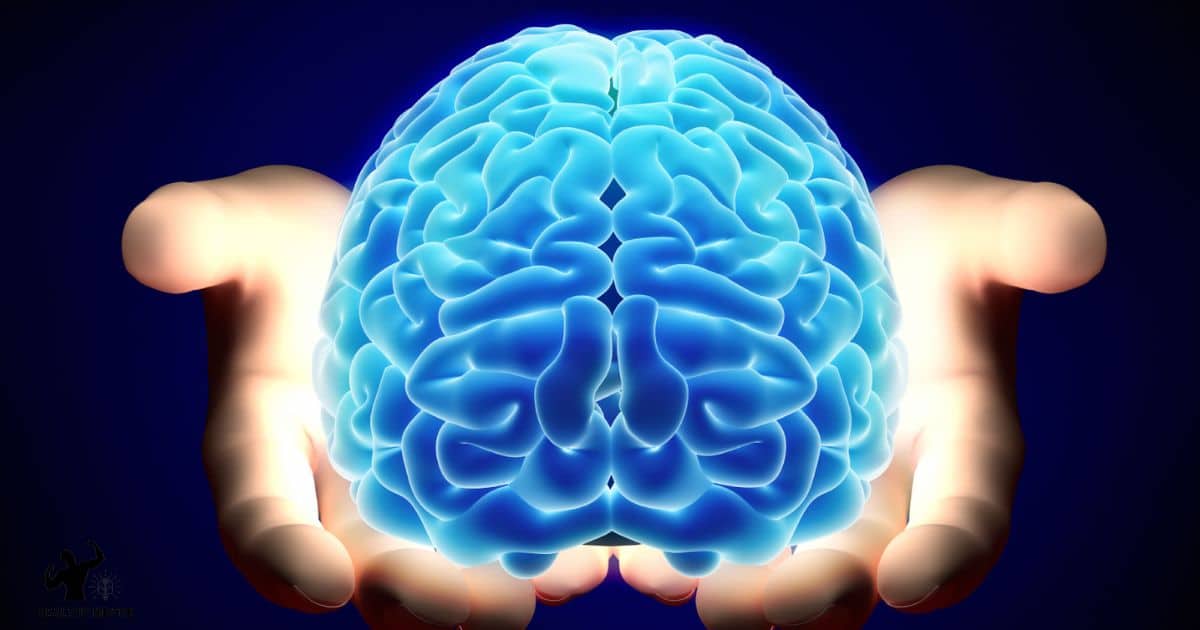In the journey of life, navigating through the complexities of mental health can sometimes feel like walking through a foggy maze. Recognizing the signs and symptoms, understanding their impact on daily life, and seeking support are crucial steps towards achieving mental wellness. This article aims to shed light on the question, “How do you know if you have mental health issues?” By providing objective and evidence-based information, we hope to empower individuals with the knowledge to make informed decisions about their mental well-being.
Key Takeaways
- Recognizing signs and symptoms is important in identifying mental health issues, such as persistent feelings of sadness or hopelessness, changes in appetite or sleep patterns, withdrawal from social activities, decreased energy levels, and difficulty concentrating.
- Interference with daily functioning, such as difficulty concentrating or making decisions, changes in appetite or sleep patterns, and withdrawal from social activities, may indicate the need for professional help.
- Seeking professional help is crucial for assessing, diagnosing, and treating mental health conditions. Mental health professionals can provide evidence-based interventions, therapy, medication, and access to resources and support networks.
- Implementing regular exercise and maintaining a balanced diet can contribute to mental wellness by releasing endorphins, promoting better sleep, providing necessary nutrients for brain health, improving self-esteem and body image, and supporting cognitive function and emotional stability.
Recognizing the Signs and Symptoms
There are 10 key signs and symptoms to be aware of when it comes to recognizing mental health issues. Understanding the stigma surrounding mental health is crucial in order to create a safe space for individuals to express their struggles. It is important to note that mental health issues can manifest differently in each person, and not everyone will experience the same symptoms. Some common signs include persistent feelings of sadness or hopelessness, changes in appetite or sleep patterns, withdrawal from social activities, decreased energy levels, and difficulty concentrating. Recognizing these signs can be the first step towards seeking help and implementing self-care strategies. It is essential to prioritize self-care by engaging in activities that promote relaxation, such as exercise, meditation, and spending time with loved ones. By recognizing the signs and symptoms and practicing self-care strategies, individuals can take proactive steps towards maintaining their mental well-being.
Understanding the Impact on Daily Life
Understanding the impact of mental health issues on daily life is crucial in recognizing the need for intervention and support. Recognizing warning signs, such as changes in mood, sleep patterns, or appetite, can help individuals identify when their mental health is affecting their functioning. It is important to seek professional help to address these issues and minimize the potential negative impact on various aspects of daily life, such as work performance, relationships, and overall well-being.
Recognizing Warning Signs
Identifying warning signs is crucial for professionals in the mental health field to effectively assess and address their clients’ well-being. Recognizing these warning signs helps to identify potential mental health issues early on, allowing for timely intervention and support. Some common warning signs include changes in behavior, mood swings, withdrawal from social activities, difficulty concentrating, and changes in sleep patterns. It is important for individuals experiencing these warning signs to seek help from mental health professionals who can provide appropriate assessment and treatment. Seeking help is essential in order to address mental health issues and prevent them from worsening. Mental health professionals are trained to provide support, guidance, and evidence-based interventions to individuals in need. By recognizing and addressing warning signs, professionals can help individuals navigate their mental health challenges and improve their overall well-being.
Interference With Functioning
The interference with an individual’s functioning caused by mental health issues, such as “Health Insurance,” can have a significant impact on their daily life, hindering their ability to perform tasks and engage in activities that were once routine and enjoyable. Mental health issues can affect various aspects of a person’s functioning, including their cognitive abilities, emotions, and behavior. It is important to recognize these limitations and seek assistance when needed.
- Feelings of constant sadness or hopelessness
- Difficulty concentrating or making decisions
- Changes in appetite or sleep patterns
- Withdrawal from social activities
Recognizing these signs and acknowledging the impact they have on one’s daily life is the first step in seeking assistance. Mental health professionals can provide support, therapy, and medication if necessary. It is crucial to remember that seeking help is not a sign of weakness, but a courageous act towards improving one’s well-being and reclaiming a fulfilling life.
Seeking Professional Help
When faced with mental health issues, individuals should prioritize seeking professional help in order to effectively address the impact on their daily life. Recognizing the need for professional help is crucial, as it enables individuals to get the appropriate support and guidance they need to manage their mental health. Mental health professionals, such as therapists, psychologists, and psychiatrists, have the expertise to assess, diagnose, and treat various mental health conditions. They can provide evidence-based interventions, therapy, and medication if necessary. Additionally, seeking professional help ensures access to a wide range of resources and support networks that can aid in the recovery process. It is important to remember that mental health issues are common and treatable, and finding the right resources can make a significant difference in one’s well-being and overall quality of life.
The Role of Self-Awareness in Mental Health
Self-awareness plays a vital role in mental health as it allows individuals to recognize and understand their own emotions, thoughts, and behaviors. By cultivating self-reflection and developing a deeper understanding of oneself, individuals can better identify potential triggers, cope with stressors, and make informed decisions to promote their overall well-being. Research suggests that self-awareness can lead to increased self-acceptance, improved emotional regulation, and enhanced mental health outcomes.
Importance of Self-Reflection
An article on Forbes highlights the significance of self-reflection in enhancing mental well-being and fostering personal growth. Self-reflection, or introspection, involves examining one’s thoughts, emotions, and behaviors to gain insight and understanding. It is a powerful tool that can have numerous benefits, including:
- Increased self-awareness: Self-reflection allows individuals to gain a deeper understanding of themselves, their values, and their motivations.
- Emotional healing: Engaging in self-reflection can help individuals process and heal from past traumas or emotional wounds.
- Improved decision-making: By reflecting on past experiences and examining their own patterns of thinking and behavior, individuals can make more informed and thoughtful decisions.
- Personal growth: Self-reflection provides an opportunity for personal growth and development, as it allows individuals to identify areas for improvement and set goals for themselves.
Overall, self-reflection plays a crucial role in promoting mental well-being and personal growth, making it an essential practice for individuals seeking to enhance their overall quality of life.
Self-Awareness and Well-Being
To truly cultivate well-being, individuals must actively engage in self-awareness, not only by examining their thoughts and emotions, but also by consistently striving for personal growth. Self-awareness is the foundation of self-care practices and mindfulness techniques, which are essential for maintaining mental and emotional well-being.
Self-care practices involve intentionally taking care of one’s physical, mental, and emotional needs. This can include activities such as exercise, getting enough sleep, eating well, and engaging in hobbies or activities that bring joy and relaxation. By prioritizing self-care, individuals can better manage stress and prevent burnout.
Mindfulness techniques, on the other hand, involve being fully present in the moment and paying attention to one’s thoughts, feelings, and sensations without judgment. Practicing mindfulness has been shown to reduce anxiety and depression, improve focus and attention, and enhance overall well-being.
Seeking Support From Friends and Family
Although it can be challenging, reaching out to friends and family for support is crucial when seeking help for mental health issues. Support systems play a vital role in an individual’s journey towards well-being. Here are four reasons why seeking support from loved ones is important:
- Emotional validation: Friends and family provide a safe space for individuals to express their feelings and experiences, which can help validate their emotions and reduce feelings of isolation.
- Practical assistance: Loved ones can offer practical support, such as helping with daily tasks or accompanying individuals to therapy sessions, easing the burden during difficult times.
- Coping mechanisms: Friends and family can share their own coping strategies, providing individuals with a range of tools and techniques to manage their mental health effectively.
- Unconditional love and acceptance: Having a support network that offers unconditional love and acceptance can foster a sense of belonging and reinforce self-worth.
However, there may come a time when professional help is needed.
When to Consider Professional Help
Three signs that indicate it may be time to seek professional help for mental health concerns include persistent and overwhelming symptoms, interference with daily functioning, and lack of improvement despite self-help efforts. Recognizing the importance of mental health and seeking professional help when necessary is crucial for overall well-being. Persistent symptoms such as prolonged sadness, anxiety, or irritability can be indicators of underlying mental health issues. If these symptoms become overwhelming and start affecting one’s ability to function in daily life, seeking professional help becomes imperative. Additionally, if self-help strategies such as exercise, relaxation techniques, or talking to friends and family do not lead to any improvement in symptoms, it is essential to consider professional assistance. Identifying the signs and seeking professional help can provide individuals with the necessary support and resources to manage their mental health effectively.
Taking Steps Towards Mental Wellness
Implementing regular exercise and maintaining a balanced diet are effective steps towards mental wellness. These actions not only benefit physical health but also have a positive impact on mental well-being. By taking action and incorporating these habits into daily life, individuals can build resilience and improve their overall mental health. Here are four key reasons why exercise and a balanced diet are essential for mental wellness:
- Exercise releases endorphins, which are natural mood boosters, helping to reduce stress and anxiety.
- Physical activity promotes better sleep, which is crucial for mental health and cognitive function.
- A balanced diet provides the necessary nutrients for brain health, supporting cognitive function and emotional stability.
- Regular exercise and a healthy diet improve self-esteem and body image, contributing to a positive mindset and improved mental well-being.
Frequently Asked Questions
Can Mental Health Issues Be Completely Cured or Will They Always Be Present?
Mental health issues cannot be completely cured but can be effectively managed. The long-term impact varies depending on the individual and the specific condition. Seeking professional help and adopting healthy coping strategies can greatly improve one’s mental well-being.
Can Mental Health Issues Be Genetic and Passed Down Through Generations?
Genetic inheritance plays a significant role in the development of mental health issues. Research suggests that certain disorders, such as schizophrenia and bipolar disorder, have a strong genetic component. However, it is important to note that not all mental health issues are solely determined by genetics. Other factors, such as environmental influences and individual experiences, also contribute to the development of these conditions. Proper mental health treatment and support can help manage symptoms and improve overall well-being. Additionally, parenting practices and the quality of the parent-child relationship can impact a child’s mental health outcomes.
Is It Possible to Have More Than One Mental Health Issue at the Same Time?
It is possible for individuals to have co-occurring mental health issues, where they experience multiple disorders simultaneously. This can complicate treatment, as the impact of multiple mental health issues must be considered for effective intervention.
Are There Any Natural Remedies or Alternative Treatments for Mental Health Issues?
Are there any natural remedies or alternative treatments for mental health issues? Explore various approaches like mindfulness, exercise, dietary changes, and herbal supplements. While these methods may offer support, it is important to consult with a healthcare professional for comprehensive treatment.
Can Mental Health Issues Develop Later in Life or Are They Only Present From Childhood?
Late onset mental health issues can develop later in life and are not exclusively present from childhood. Traumatic events can have a significant impact on mental health, contributing to the development of mental health issues.
Conclusion
In conclusion, recognizing the signs and symptoms of mental health issues is crucial for understanding their impact on daily life and seeking appropriate support. Self-awareness plays a significant role in maintaining mental wellness, but it is also important to reach out to friends, family, and professionals when needed. By taking proactive steps towards mental wellness, individuals can improve their overall well-being and lead fulfilling lives.







